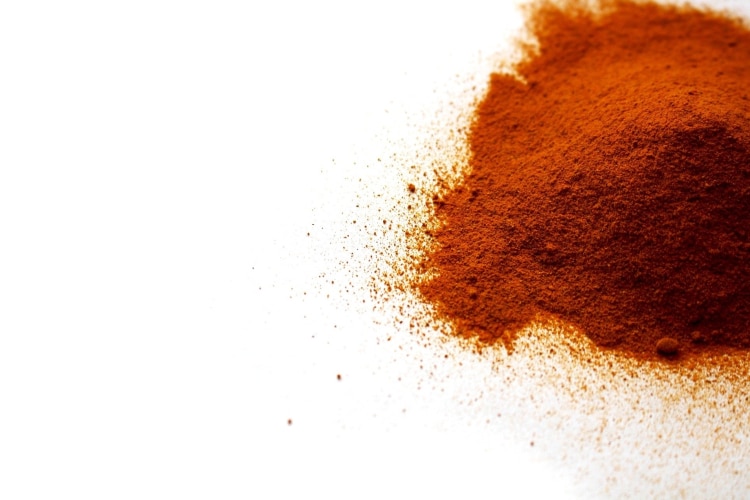
Good Brain Foods That Improve Memory and Enhance Brain Power
Eating certain foods can help make life’s little details unforgettable. Age, stress, quality, and length of sleep, medications, and of course, nutrition can all influence how well your memory functions. Physiologically, good memory depends on your total number of brain cells (neurons), the smooth flow of communication between the cells, and the health of the cells.
In many ways, overall health can strongly affect memory. For example, the health of the body’s cardiovascular system can affect the performance of brain cells. Every cell in the body needs a steady supply of oxygen and nutrients to stay alive and work properly.
Because oxygen and nutrients are carried in the bloodstream, anything that impedes blood flow can negatively affect brain cell function. Simply put, a healthy heart makes for a healthy brain. So it’s important to keep blood pressure and cholesterol levels in check and to exercise regularly and not smoke.
Table of Contents
Diet and Memory
A heart-healthy diet is therefore crucial to general health as well as to the health of memory, and compelling research has linked specific foods and their nutrients to the enhancement or preservation of memory. These “brain” foods contain flavonoids, which are chemical compounds that give fruits and leafy green vegetables their color. Two important flavonoids that appear to support memory function are anthocyanins and quercetin (both are found in apples, blueberries, and red onions, to name just a few sources).
Other nutrients that have been found to improve memory are folate and omega-3 fatty acids.
Take a look at the following list for a rundown of the best foods for boosting brainpower.

Berries
Berries have some of the highest concentrations of antioxidants among fruit, and all berries are rich in healthy anthocyanins and flavonols(a subgroup of flavonoids), which may help protect against the breakdown of brain cells. Some encouraging animal studies have suggested that diets rich in flavonoids may help reverse memory loss in humans.
Blueberries, in particular, have received a lot of attention because they are one of the best food sources of flavonoids. In fact, a British study revealed that eating plenty of blueberries can enhance spatial memory and learning.
Fresh berries are available at farmers’ markets, local supermarkets, and health food stores. During off-season months, frozen berries are a good substitute and just as nutritious.
Leafy greens
Leafy greens like spinach, kale, collard greens, mustard greens, and turnip greens are loaded with folate (folic acid is the synthetic form of this nutrient that’s found in supplements and fortified foods) — which seems to have a direct effect on memory.
In a study done at Tufts University in Boston, researchers followed 320 men for three years and tracked their blood levels of homocysteine — an amino acid that has been linked to a higher risk of heart disease. The participants who had high levels of homocysteine showed memory decline; those who ate foods rich in folic acid, however, which directly lowers homocysteine levels, demonstrated a protective effect against memory decline.
An Australian study also found that a diet featuring plenty of foods rich in folic acid was associated with faster information processing and memory recall. After just five weeks of consuming adequate amounts of folic acid, women in the study showed overall improvements in memory.
Fatty Fish:
Healthy fats are important for a healthy mind. Research suggests that when it comes to food and memory, fish should be the star of the show — specifically, fatty fish like salmon, sardines, herring, and mackerel and the generous amounts of omega-3 fats they provide.
In fact, a study published in the Archives of Neurology in November 2006 found that subjects with the highest levels of omega-3s were significantly less likely to be diagnosed with dementia than subjects with the lowest levels.
Another, earlier study, conducted by researchers at the Rush University Medical Center in Chicago, followed more than 3,000 men and women for six years to see how diet affected their memory.
Those who ate fish at least once a week had a 10 percent slower memory decline than those who did not eat fish, a difference that gave them the memory and thinking ability of a person three years younger.
Strive to eat three 4-ounce servings of fatty fish per week. If that’s not realistic, consider using fish oil supplements.
Coffee
There’s good news for coffee lovers: About two years ago, researchers from the University of Innsbruck in Austria found that caffeinated coffee can temporarily sharpen a person’s focus and memory.
After giving volunteers the caffeine equivalent of about two cups of coffee, they used magnetic resonance imaging to observe that the volunteers’ brain activity was increased in two locations, one of which is involved in memory. Volunteers given no caffeine showed no increase in brain activity.
Another study, published in a leading neurology journal, found that the effects of caffeine may be longer-lasting in women. This four-year-long study involved about 7,000 participants who all went through baseline evaluations for cognitive function and blood pressure, cholesterol levels, and other vascular issues.
The researchers re-evaluated the participants at the end of two years and again at the end of four years; they found that women 65 and older who drank more than three cups of coffee per day (or the caffeine equivalent in tea) had about a third less decline in memory over that time than the women who drank one cup or less of coffee (or the caffeine equivalent in tea) per day.
The results held up even after the researchers adjusted them to take into account other factors that could affect memory function, such as age, education, baseline cognitive function, depression, high blood pressure, high cholesterol, medications, and chronic illnesses. The researchers speculated that this caffeine-memory association was not observed in men because it’s possible that the sexes metabolize caffeine differently.
One thing to keep in mind, though, is that unfiltered coffee (such as espresso, as well as coffee made in a French press) contains compounds that can raise cholesterol levels, especially in people who are already battling high cholesterol. To be safe, stick with filtered coffee, and of course, be moderate when adding milk and sugar!






